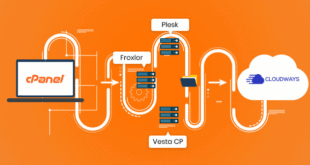If you’ve been shopping around for a hosting plan you’ve probably noticed advertisements that promise unlimited bandwidth, disk space, and a plethora of other limitless attributes. While it is technically true that these plans are not limited in the amount of bandwidth or disk space you can consume on a monthly basis, per se, they are limited in how many task/server requests you can perform on an hourly/daily basis. These limitations are put in place to ensure that a single user does not affect the performance of the server by overloading it with too many requests at once. Of course, an inquiring mind realizes that while there is no set monthly limitation, an hourly or daily limitation of any kind automatically equates to a certain threshold that can’t be crossed.
How are Bandwidth and Disk Space Limitations Imposed?
 Although the answer to this question varies on the hosting company, most providers will send you an e-mail notification if you’re consuming too many resources in a short time period. You may begin to notice that pages on your sites are loading slower or are failing to load altogether because the amount of server resources allocated to you are being restricted in order to prevent you from reaching your limits. In some cases you can view your bandwidth and disk space usage within the control panel, which indicates how close you are to your limit using a graph bar. If you find that you’re regularly approaching the limits of your hosting account you may want to consider upgrading to ensure acceptable performance.
Although the answer to this question varies on the hosting company, most providers will send you an e-mail notification if you’re consuming too many resources in a short time period. You may begin to notice that pages on your sites are loading slower or are failing to load altogether because the amount of server resources allocated to you are being restricted in order to prevent you from reaching your limits. In some cases you can view your bandwidth and disk space usage within the control panel, which indicates how close you are to your limit using a graph bar. If you find that you’re regularly approaching the limits of your hosting account you may want to consider upgrading to ensure acceptable performance.
What Other Type of Limitations Are There?
Other than bandwidth and disk space limitations, most hosting providers also implement restrictions on the types and amounts of requests that can be initiated by certain applications on the server. For example, you may be using a content management system like WordPress that has an open source plugin installed that is requesting to many functions per hour, and this may result in error messages and affected performance if you begin to encroach upon or exceed your limitations. Fortunately, in many cases you can change a few lines of code in your server setup files to allow for more requests from specific applications/extensions, and plugin developers/users usually publish guides detailing how to do this.
99% Uptime Guarantee – What Does It Mean?
You’ve probably seen the 99% uptime guarantee before, and if you were exercising critical thinking at the time you may have wondered “99% of how much time.” In other words, are they promising that your websites will stay online 99% of the year, month, week, day, billing period, or throughout your entire hosting contract (which can be two years or longer, depending on the package you purchase). Obviously, there is a significant window of difference between 1% of a day and 1% of a year, so how much downtime is your hosting company allowed to get away with before they violate their guarantee? Furthermore, does the guarantee even state what type of compensation you’ll receive if they’re unable to maintain this level of uptime? If you want the answer to these questions you’ll have to speak with one of your hosting provider’s customer support representatives, as each company varies in their terms and conditions.
What Can You Do to Avoid Limitations and Downtime?
 Perhaps the best way to avoid the hassles associated with approaching or exceeding hosting limitations is to utilize a server that is powerful enough to accommodate the typical traffic and data levels of your website(s). Ideal options include virtual private server, dedicated server, and cloud hosting solutions, all of which provide more extensive performance capabilities than the conventional shared plan. The cloud hosting environment is by far the most reliable because it utilizes a network of servers that work together as a single unit in order to honor the requests of site visitors and applications without overloading a single server. However, a dedicated server is quite difficult to overburden unless you operate a massive multimedia site with large traffic numbers. Ultimately, avoiding any sort of limitation or downtime is as simple as purchasing a sufficient plan from a reputable company.
Perhaps the best way to avoid the hassles associated with approaching or exceeding hosting limitations is to utilize a server that is powerful enough to accommodate the typical traffic and data levels of your website(s). Ideal options include virtual private server, dedicated server, and cloud hosting solutions, all of which provide more extensive performance capabilities than the conventional shared plan. The cloud hosting environment is by far the most reliable because it utilizes a network of servers that work together as a single unit in order to honor the requests of site visitors and applications without overloading a single server. However, a dedicated server is quite difficult to overburden unless you operate a massive multimedia site with large traffic numbers. Ultimately, avoiding any sort of limitation or downtime is as simple as purchasing a sufficient plan from a reputable company.
 Cheapest Linux VPS Home for Cheap Virtual Private Server
Cheapest Linux VPS Home for Cheap Virtual Private Server 


